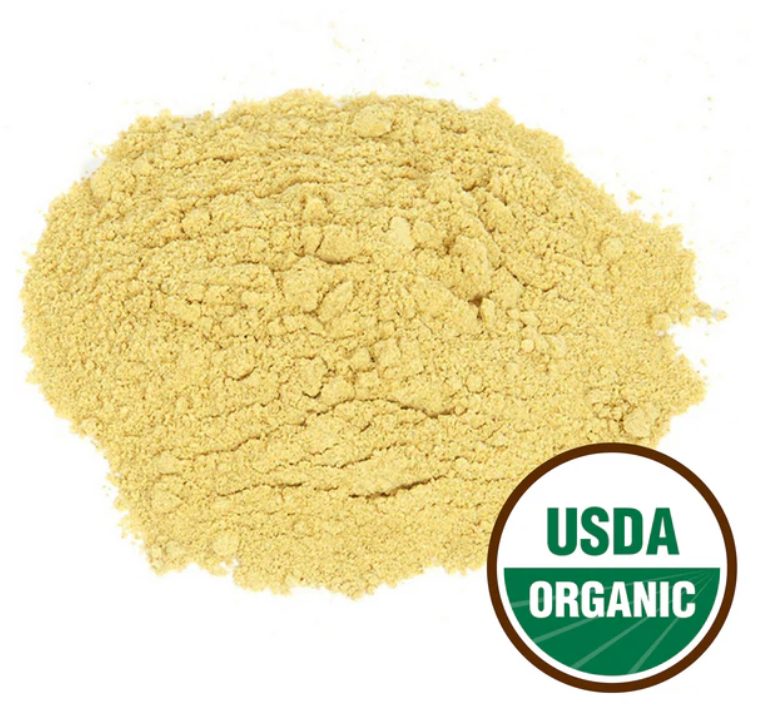Description
Fenugreek is extremely helpful to the digestive system, mainly due to its mucilaginous properties, which trigger a sympathetic response in the other mucous membranes of the body. This oftentimes occurs in the respiratory and urinary systems. The seeds of this herb are very high in mucilage content. Many herbalists consider fenugreek for its expectorant properties.
This 4-7 foot annual is smooth and strongly anise or licorice scented. The long taproot sends up a round stem with few branches. Leaves are trifoliate on hairy petioles with obovate leaflets. Flowers are axillary and yellowish-white. The fruit is a 16-seeded compressed, malodorous legume. Widely cultivated for culinary and medicinal uses.
The seeds are historically used to strengthen recovery from an illness, bronchitis, fevers, a gargle for sore throat, increases breast milk, an oral contraceptive, restores hair growth, aphrodisiac, reduces cholesterol and urine sugar in late onset diabetes.
UPC: 084783005032.
Origin(s): Egypt, India.
Latin Name(s): Trigonella foenum-gracum.
Also known as: Greek hay, Greek clover, alholva, hu lu ba.
Plant Part(s) Used: Seed.
Appearance: Yellowish brown, golden beige.
Aroma: Hickory-like, spicy.
Taste: Slightly bitter, pungent & grainy.
GMO Status: Non-GMO.
Allergen: None.
Additives: Free of any additives or preservatives.
Applications / Preparations: Can be put into capsules, soups, stews, sauces, spices daals, curries or infused as an herbal extract. For cosmetic use apply moist as a poultice or use in skin care lotions & creams.
Storage: Store in a sealed container in a cool, dry place.
Shelf Life: It is very difficult to pin down an exact expiration date for most single herbs as they do not really expire, they lose potency or strength over time but will still have value. Unlike synthetic material or drugs, herbs can contain many constituents that contribute to their medicinal effects. Even if when we know what the active constituents are, there are often many of them in a single herb, each with different rates of degradation. Some herbs lose their effect more easily. Other herbs that possess more stable compounds such as alkaloids or steroids will last much longer.
A huge part of the degradation rate of herbs depends also on the storage conditions of the herb, & even on the quality of the herb before storage – how it was grown, harvested, dried & processed. If the product is left in hot places or open to sunlight then it will degrade much quicker than if it was stored in cool, dry place & sealed tightly.
A good rule of thumb is that herbs should be stored no longer than 2-3 years but many herbs will have great strength much longer than that. To determine if a an herb is still good you can check the appearance & aroma. Herbs that are no longer acceptable will have lost much of its vibrant color & will instead appear dull & faded. The bigger key though is to smell the raw materials to see if the potent aroma is still present.
Warning: Not for use in pregnancy except under the supervision of a qualified healthcare practitioner.
Brand: Best Botanicals
Organic Fenugreek Seed Powder 4 oz.


Reviews
There are no reviews yet.